Premier League: How important are the first six games?
Published: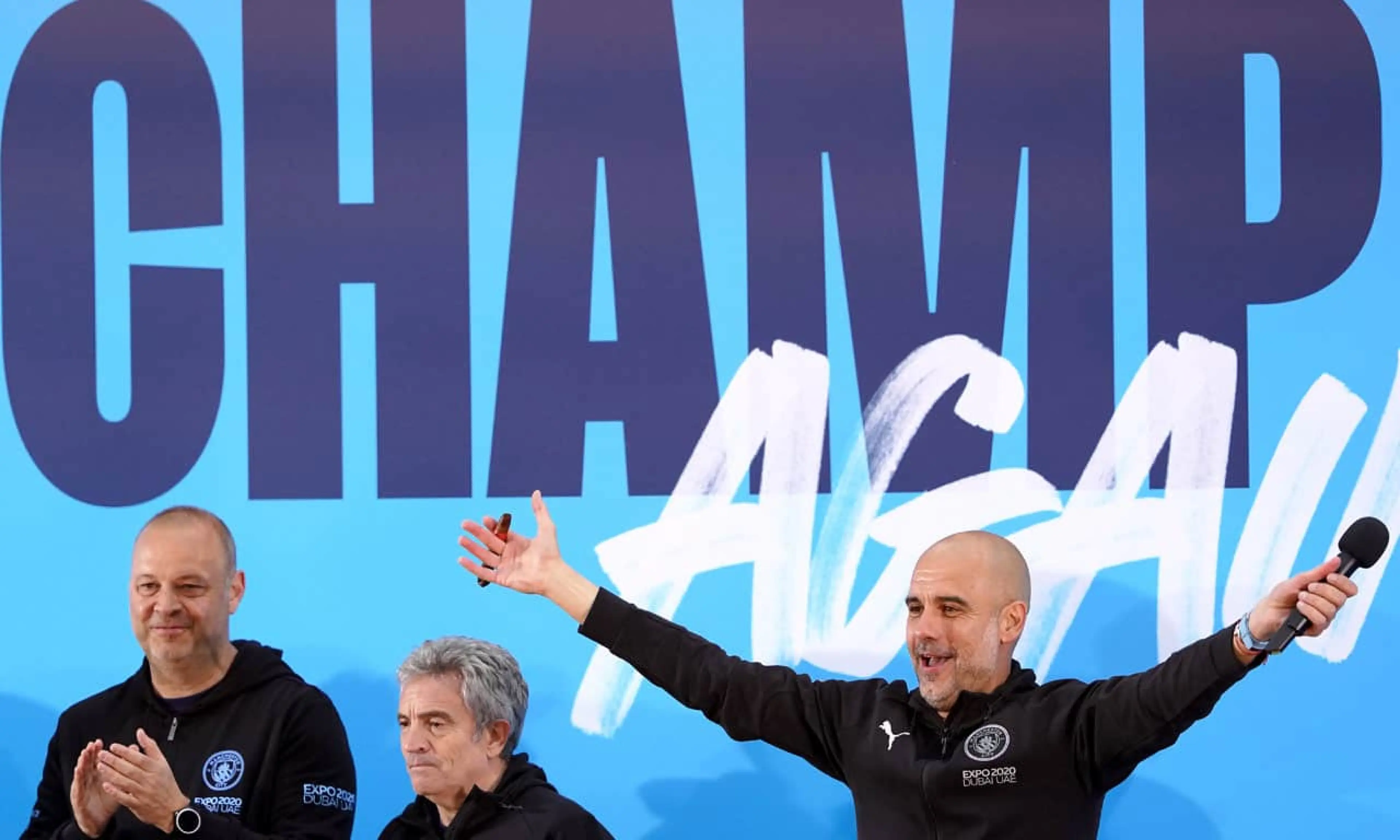
Premier League starts: Do the first six games matter?
The 2022-23 Premier League season is set to get under way on Friday August 5 when Crystal Palace host Arsenal.
The Gunners also kicked off last season on a Friday evening, losing 2-0 to newly-promoted Brentford on a raucous night in West London. Mikel Arteta’s side went on to suffer further defeats in their next two games to sit bottom at the end of August, before recovering and ultimately finishing fifth.
How often do teams recover from a poor start? Is it essential to fly out of the traps to mount a serious title challenge?
We have looked back at 30 years’ worth of Premier League results to assess the importance of the early part of the season.
How important is a good start?
The way a team performs over the first six matches is generally a good indicator of how they will fare over the course of the season.
The grid below shows where teams finish based on their performances in the first half-dozen games. Unsurprisingly, teams that accumulate points early on tend to finish in the top half, while those that struggle for results initially rarely recover.
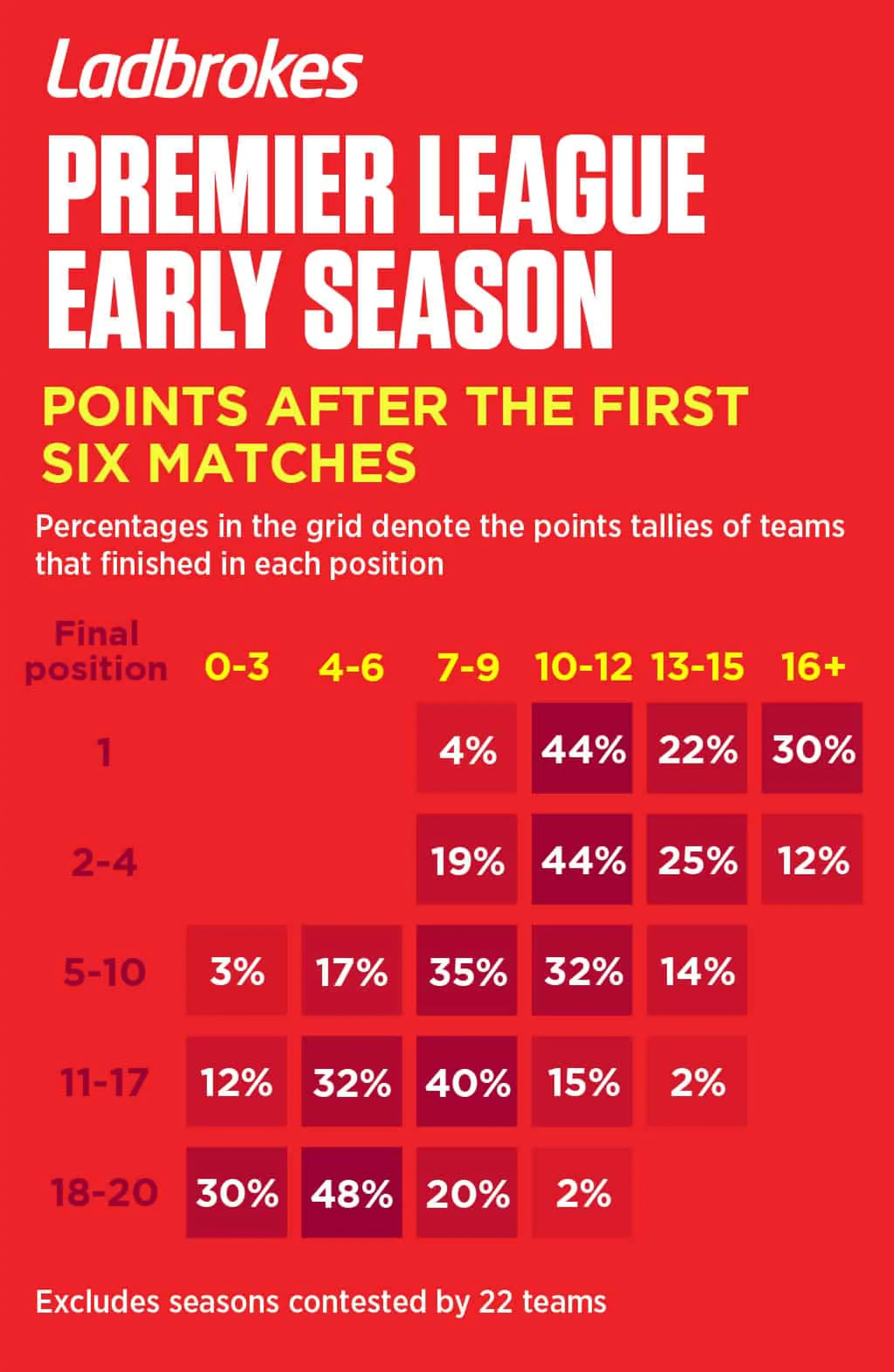
Title winners generally require at least 10 points from their opening six fixtures. The only exception to this was Manchester United under Sir Alex Ferguson in 2002-03, who won just two of their first six matches for a total of eight points. The Red Devils were rampant in the second half of that campaign, going unbeaten in the last 18 games.
Meanwhile, teams are highly unlikely to be relegated if they start well. Since 1995-96, only two sides have finished in the bottom three after taking 10 points or more from their first six games.
One of those was Middlesbrough in 1996-97, who would have finished 13th if not for a points deduction, while the other was Bournemouth in 2019-20. Three wins and a draw from their opening six matches proved to be a false dawn for the Cherries, as their five-year stay in the top flight came to an end.
Keep an eye on your rivals
Stealing a march on your rivals early in the season bodes well at both ends of the table.
Since the first Premier League season in 1992-93, 10 out of the 36 (28%) teams who were top or joint-top after six games went on to win the title, while the vast majority (86%) made the top four. A further 12 eventual champions were between one and three points adrift, with the remaining eight trailing by four points or more.
Antonio Conte’s Chelsea overcame the largest deficit of any team in 2016-17. The Blues had 10 points after their opening six games, eight points fewer than Pep Guardiola’s Manchester City who started that season with six straight wins. Conte’s men went on to win the league by seven points from Tottenham, while City finished third.
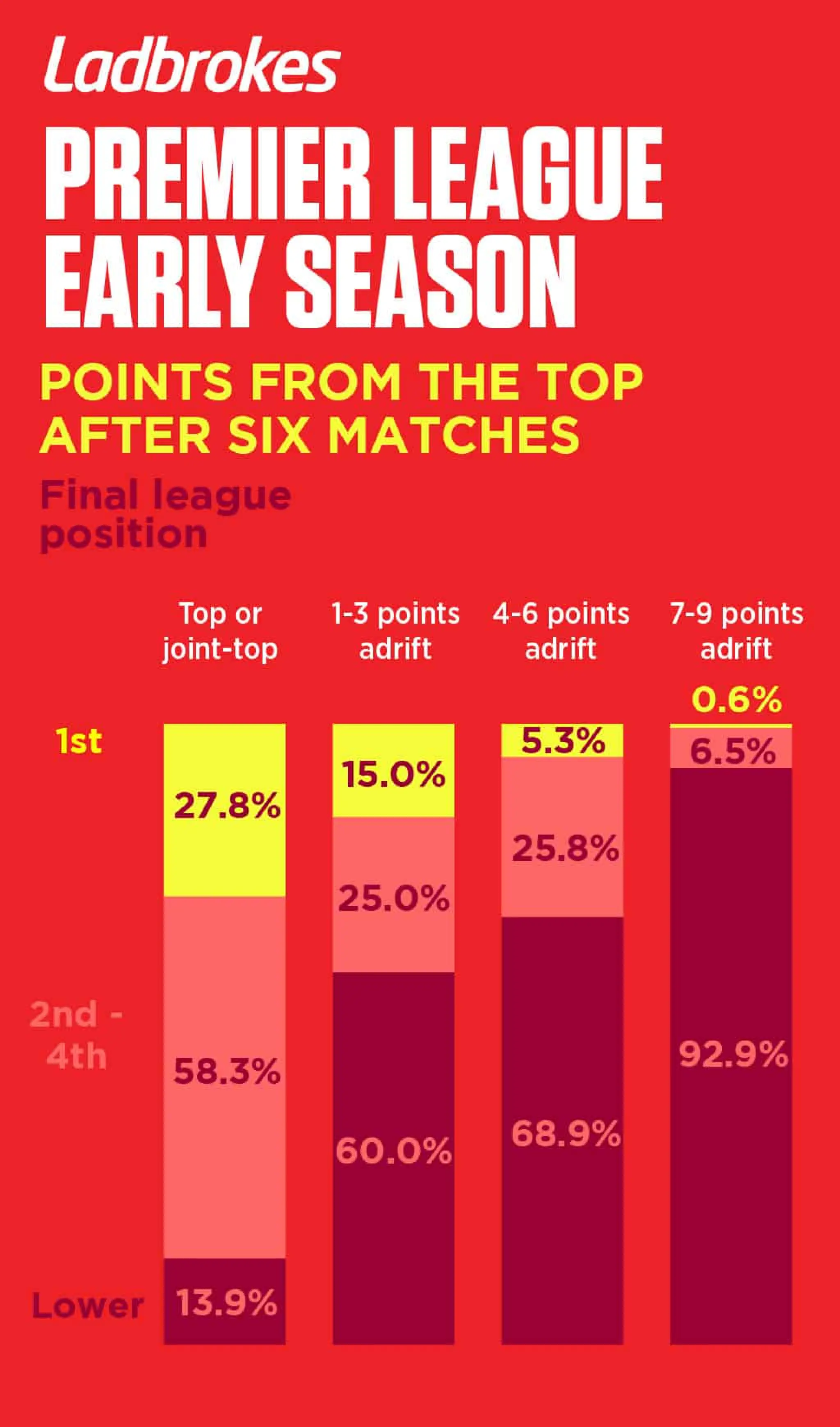
Of clubs that were bottom or joint-bottom after six matches, more than half (58%) ended up being relegated. Norwich were in this position in 2021-22, having lost all of their opening six games. Manager Daniel Farke was shown the door following the disastrous start and his replacement Dean Smith was unable to guide the Canaries to safety.
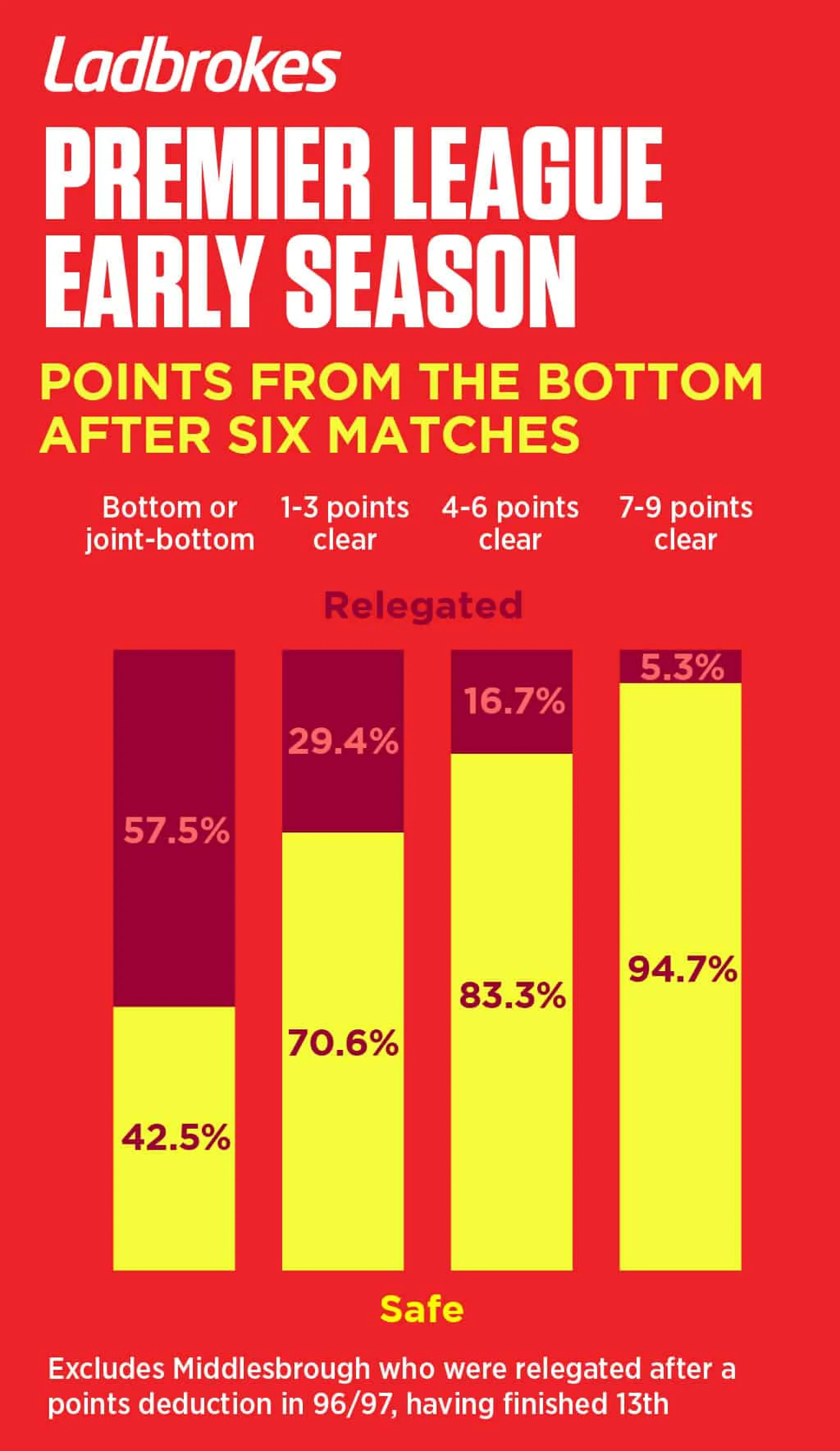
While a bad start can be difficult to recover from, teams cannot rest on their laurels should they find themselves in a comfortable position after six games.
Relegated Watford had enjoyed a half-decent start to last season, with seven points from their first six fixtures. Manager Xisco Munoz was sacked shortly afterwards, before both Claudio Ranieri and Roy Hodgson tried and failed to stop the Hornets’ slide towards the drop.
Look out for a run of form
An early unbeaten run is no guarantee of continued success, but it does put to rest any fears of relegation.
Over the course of 30 Premier League seasons, 63 teams have gone the first six games unbeaten. This includes 17 clubs who went on to be champions – meaning that over half of title winners were undefeated in their opening six fixtures – plus a further 24 sides who finished in the top four.
That leaves over a third of clubs who avoided defeat in their first six games but finished outside the Champions League places. The last team to do this was Everton who ended fifth in 2013-14.
No team has ever been relegated from the Premier League having gone unbeaten in their first six matches. The closest anyone has come was Aston Villa in 2011-12, who began with a seven-game unbeaten run only to finish 16th, two points above the relegation zone.
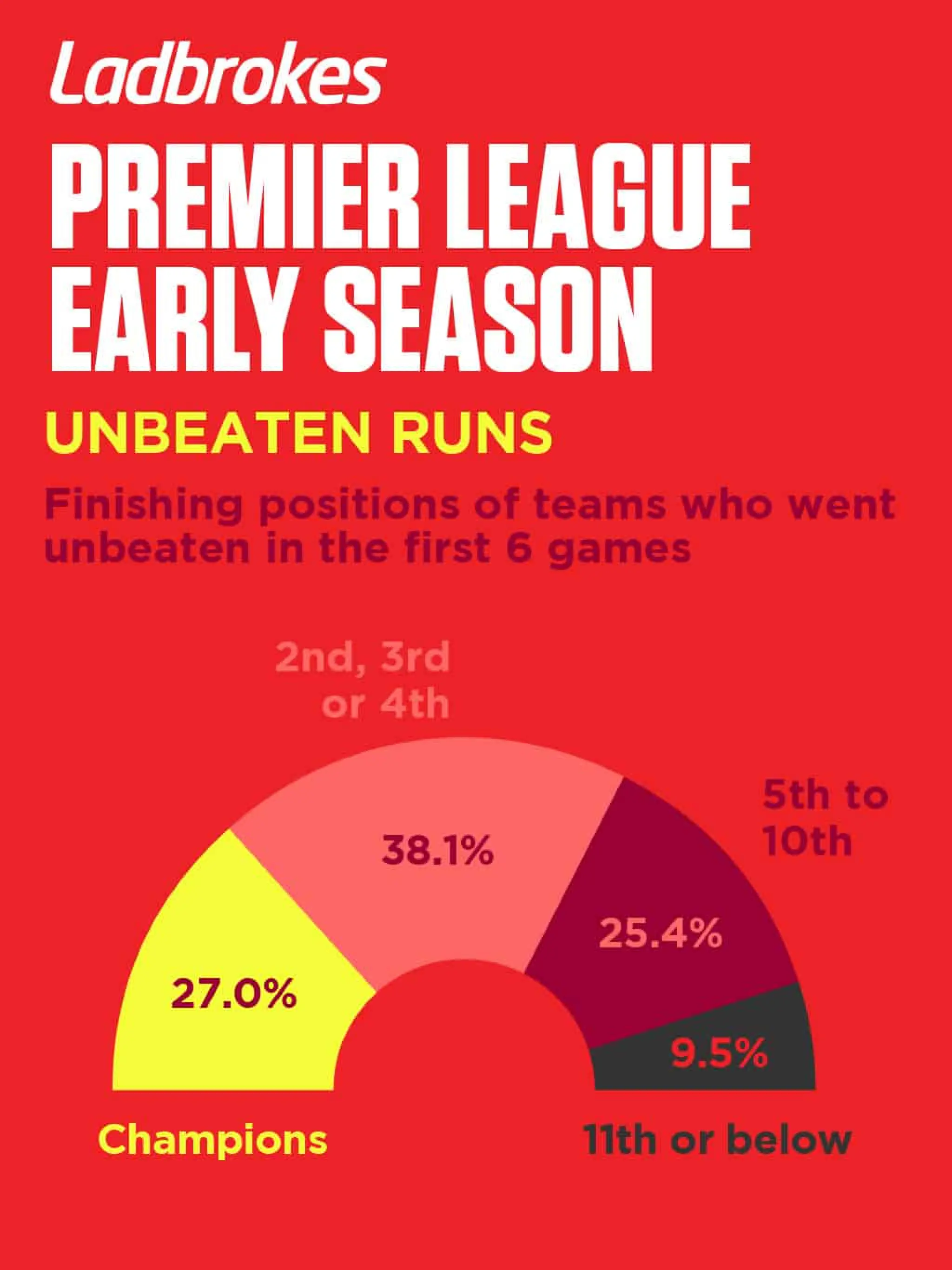
On the other hand, going winless in the opening six games is a pretty sure sign of an impending relegation battle. Almost half (47%) of teams to have started this way ended in the bottom three, while only 14% achieved a top half finish.
Last season, a record five clubs went at least six games before securing their first win – Burnley, Leeds, Newcastle, Norwich and Southampton. In a measure of Eddie Howe’s success, the Magpies had to wait the longest for their first victory (week 15) and yet still managed to finish the highest (11th).
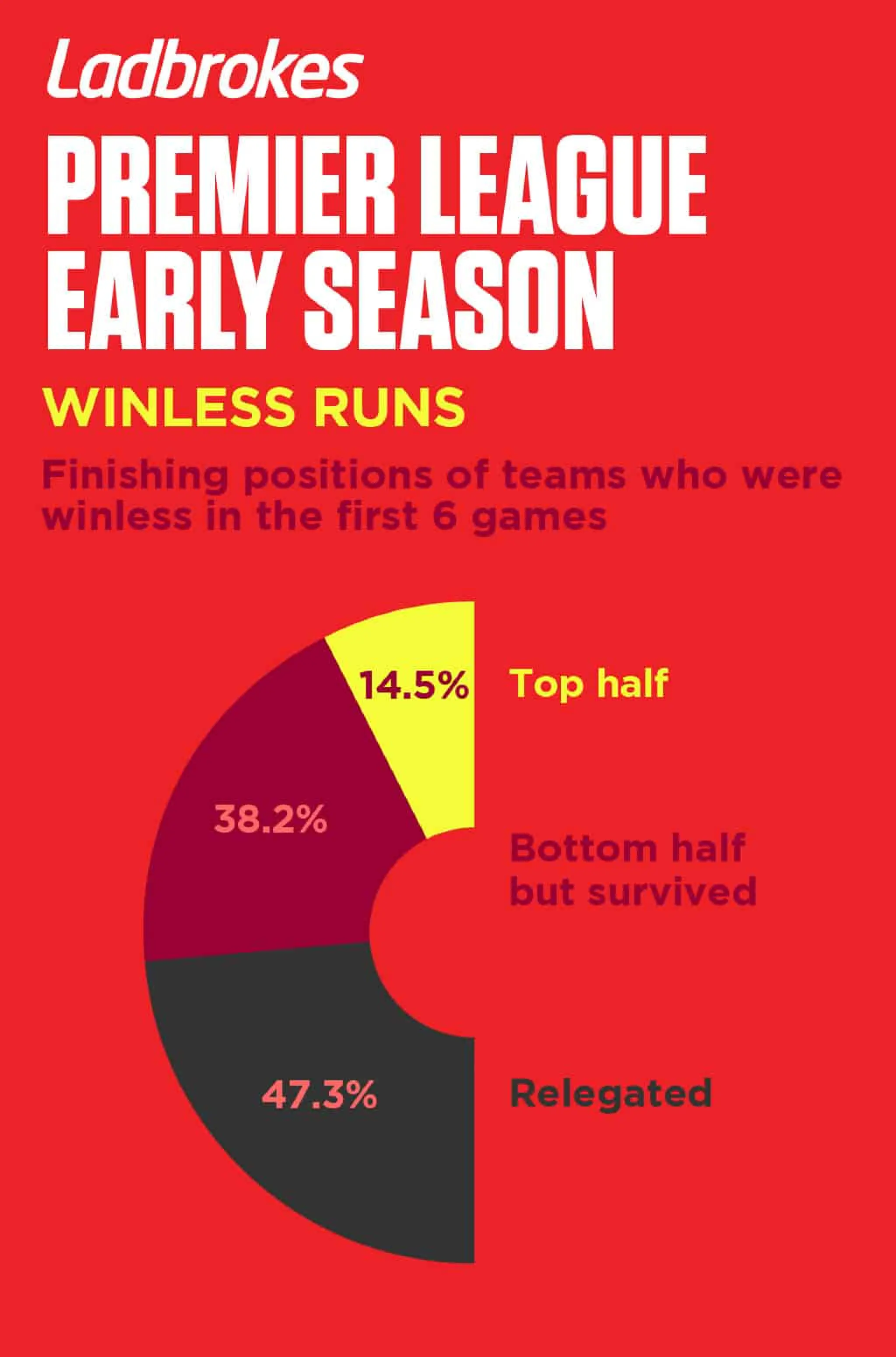
Who can we expect to start well?
Current champions and favourites to retain their title Man City have the best record in the first six matches of recent Premier League seasons, averaging 2.25 points per game over the past decade. Liverpool average 2 points per match, just ahead of Chelsea on 1.98.
Everton are perhaps the most likely to start well before fading over the course of the campaign, based on past results. They boast the seventh-best record during the early part of the season, but only the 12th-best across the remainder of the campaign.
The Toffees repeated their usual trick last season, starting strongly under Rafa Benítez with 13 points from six games, before going on a run of nine defeats in 12 games that saw Benítez lose his job.
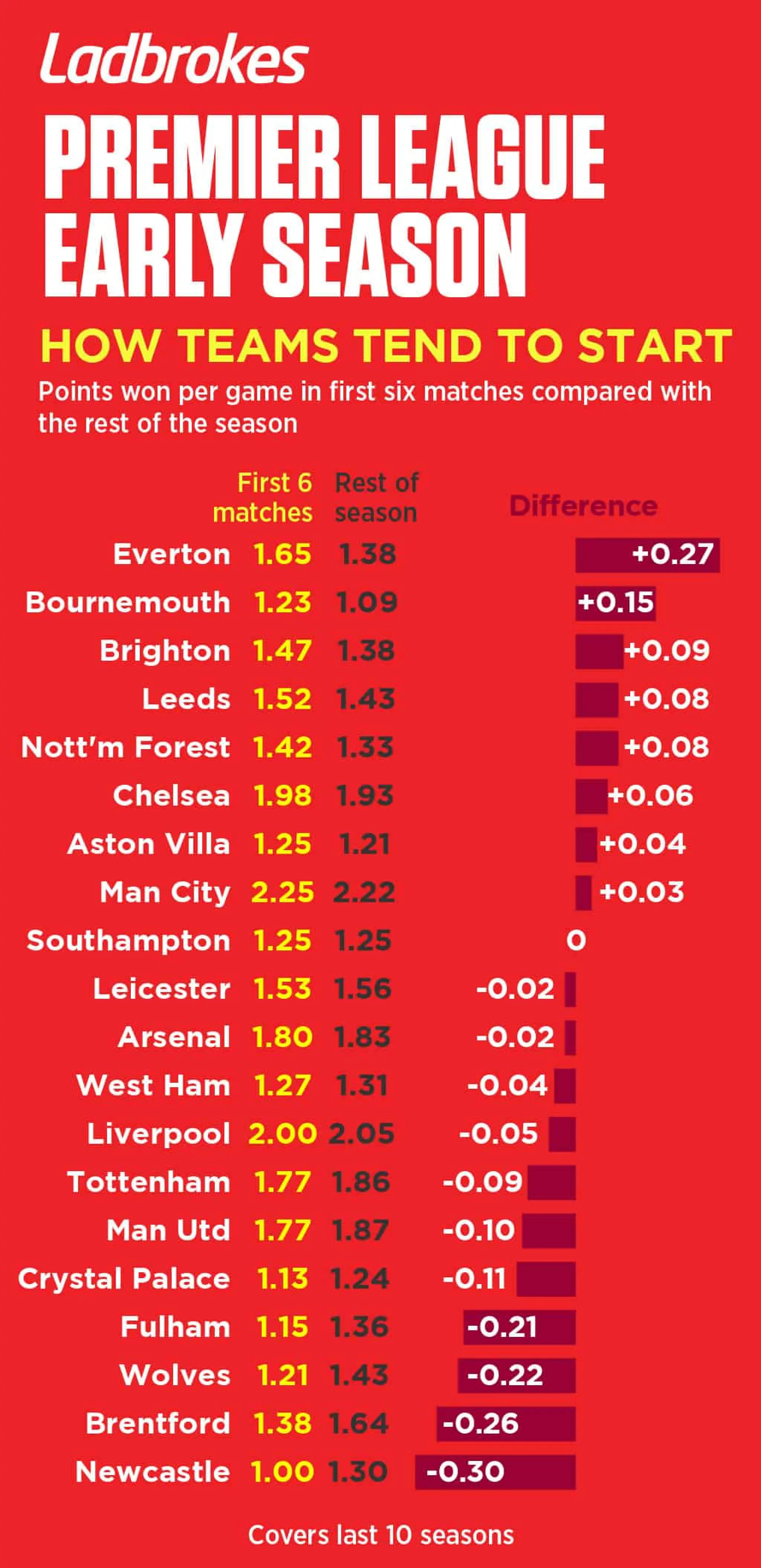
Newcastle are notoriously poor starters, taking just a point per game in the first six versus a 1.3 average for the rest of the season. Last season was no exception, with the Magpies mustering just the three points from their opening six fixtures. Their form failed to improve until the second half of the campaign, at which point Howe had taken over as manager from Steve Bruce.








